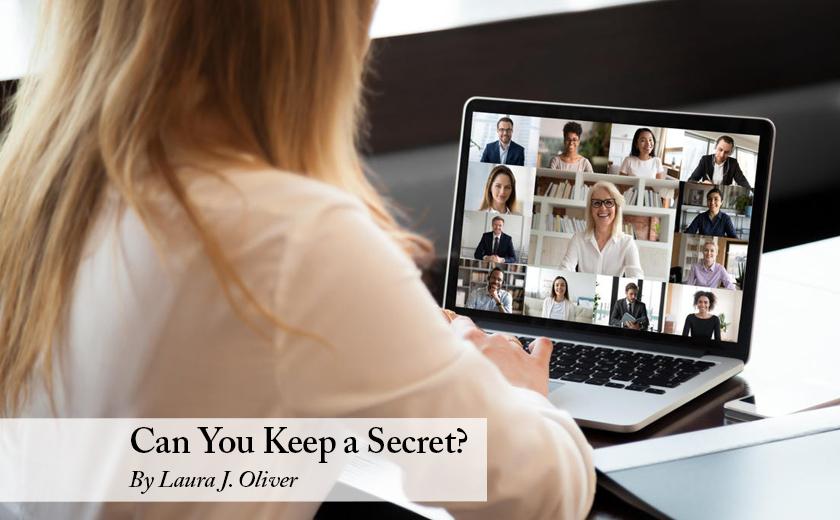The distinction between writing, which is therapeutic, and actual therapy is often thin, but I try to stay in my lane. I’ve lived with therapists, coached therapists and (good news, readers!), had a lot of therapy, but I’m an editor—the analogy being that although I’ve seen the ads for Hair Cuttery I’m not qualified to trim your bangs.
Of the many excellent reasons I’m not a therapist is the requirement to keep a secret. This is also why the new rule my sisters have put in place is requiring discipline. We zoom every week and often talk about our families. I used to pass on updates among cousins, children, aunts, uncles—as gifts, really. Stories are the currency of our intimacy, and we exchange them in kind. None of us is interesting enough to be the whole story. We need other characters, sidebars. A few mistakes, tragedies, and romances not our own
My extended family doesn’t see each other often so my impulse has only been to connect the outliers. But it’s come to our attention in sister-zoom that this is a slippery slope to betraying a confidence, so now there is a new rule to keep from misunderstandings. If any one of us is sharing something that has to remain in zoom-room, we have to identify it like the security access zone around a nuclear power plant, smack a Top-Secret label on it.
Of course, we’ll all honor the agreement but at a cost. Science proves secret-keeping rachets your amygdala into overdrive, making you more irritable. The energy of self-censorship compromises the hippocampus as well, due to the release of excessive cortisol. This compromises memory, learning and the immune system.
Neuroscientist David Eagleman reports that when you have a secret, the part of your brain that wants to tell is in constant conflict with the part of your brain that wants to keep the information hidden. Keeping a secret is spelled s-t-r-e-s-s.
Yet according to Forbes, 97% of us have one or more secrets at any one time and most of us routinely have as many as 13. Some are positive. I look into my best friend’s face and though my lips are zipped my brain is shouting, “I bought you that necklace from Sundance!”
I learned my first secret at the age of five. My father drank. I’d discovered little vodka bottles stashed in the pantry behind 5-pound Domino Sugar bags. I knew from their location the bottles were a secret—and because they were secrets, they were a source of anxiety and shame. I think I’d already imbibed the idea that there is only one sin: unkindness. And to expose someone’s vulnerability by revealing something they wanted to hide was unthinkable.
And though I now understand that my father was self-medicating and the victim of his body’s chemistry, the weight of this secret bore down with a shame and sadness so great I’m surprised I could walk. I had my own gravitational force field ten times that of the earth’s until the night I finally confessed this knowledge to my mother.
She was attempting to rock me to sleep but I had a secret. The part that wanted to tell was in a battle to the death with the part that needed not to. And we were both 5 years old.
It seemed to take hours before I could finally whisper, “I know Daddy drinks.” My mother kept on rocking me, and finally said, “Some things are too heavy for little girls to carry. Give this to me. I will carry it for you.”
I don’t think there’s a perfect, one-size-fits-all formula for this conundrum: the need to hold sacred other’s confidences versus the need to be transparent, free of subterfuge.
I’m looking at an oil painting my mother gave me as a wedding present when I was 22 years old. It is 24 by 26 inches in size, in a gold frame with a linen liner. It is the most creative, intimate, and loving of gifts. It’s of downtown Annapolis from the top of the State House on State Circle looking down Maryland Avenue towards the Naval Academy Chapel where the wedding would take place in a matter of days. It is a painting of the town in which I’d live most of my adult life. Give birth to three children.
And it is a terrible, terrible painting. The artist was so unskilled that the buildings and street are painted without perspective, no vanishing point—you can’t tell the State House is actually on a hill. Storefronts are flat and angled the wrong way, signs float unattached to the businesses they were meant to detail. One building has been painted in and then erased, leaving a brick-colored smear in the sky.
Brain science says secret-keeping disconnects you from your sense of self, but maybe sometimes your sense of self depends on keeping a secret. My mother was so pleased with her choice. I hope I never gave away how I felt about it.
I trusted her with my first secret, but I’ll keep this one to the end of time.
Laura J. Oliver is an award-winning developmental book editor and writing coach, who has taught writing at the University of Maryland and St. John’s College. She is the author of The Story Within (Penguin Random House). Co-creator of The Writing Intensive at St. John’s College, she is the recipient of a Maryland State Arts Council Individual Artist Award in Fiction, an Anne Arundel County Arts Council Literary Arts Award winner, a two-time Glimmer Train Short Fiction finalist, and her work has been nominated for a Pushcart Prize. Her website can be found here.



Den Leventhal says
Ahh. Secrets. We all have them. I just put mine in a box, read a lot of history, and laugh at myself and the world as I perceive it. They don’t bother me at all.
Laura J Oliver says
Clearly a plan that works! Thanks for writing.